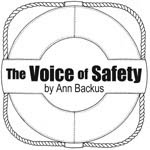Are You Sleeping, Enough?
A Discussion About Fatigue and Fishing

Do you take coffee or other caffeinated drinks with you when you lobster? Or if you are a trip fisherman, is there always a pot of coffee on hand in the galley? Do you rely on caffeinated or high sugar drinks to reduce fatigue when fishing?
There is currently an interesting dynamic around the issue of fatigue: On the one hand, sleep researchers and the popular press are concerned that the general population is not getting enough sleep. Six to eight hours per night are recommended. On the other hand, drink manufacturers have stepped up to the plate to offer us caffeinated and high sugar drinks to combat the fatigue we are experiencing – probably because of our sleep deficit. They are busy enticing us with exotic flavors of coffee and concocting high energy drinks such as Red Bull™, 5-Hour Energy™ and Monster™ to name a few.
How does fatigue play into the fishing industry?
The International Maritime Organization (IMO) provided the following guideline in 2002 by defining fatigue as: “A reduction in physical and//or mental capability as the result of physical, mental, or emotional exertion which may impair nearly all physical abilities including: strength; speed; reaction time; coordination; decision making; or balance.”1
Given this sweeping list of impairments, it is interesting that there is not more research into the role fatigue plays in fishing fatalities and injuries. According to Morbidity and Mortality Weekly published by the CDC, from 1992-2008 there were 504 fishing deaths which translated in to a rate of 128 fatalities per 100,000 full time equivalent (FTE) fishermen compared to 4 fatalities per 100,000 FTE US workers.2 Moreover the Northeast fishing industry with 25% of these 504 deaths was a close second behind Alaska which had 26% of the deaths in that period. It is highly likely that fatigue was a factor in at least some of these fatalities.
The Northeast fishing
industry with 25% of
these 504 deaths was a
close second behind Alaska
which had 26%.
What does the research say?
Matheson at the University of Aberdeen, in his gap analysis of research on the health of fishermen and work performance3, quoted a study of UK fishermen which suggested that 47 of 90 trawler vessel-related casualties were “attributed to poor navigation, and fatigue was suggested as a contributing factor to loss of vessel and human life.”
Matheson also quoted a Polish study of off-shore and on-shore fish workers, noting that “Of all accidents recorded 52% were said to be the result of human error.” In the conclusion to his gap analysis, he cites fatigue as an area of research that is particularly lacking.
In a later study (2010) Paul Allen and his colleagues surveyed 81 British fishermen. Their findings revealed that
• 80% of those interviewed “believed their personal safety had been a risk because of fatigue;”
• 16% reported “having been involved in a fatigue-related accident;” and
• 44% had “worked to the point of exhaustion or collapse.”4
In the Northeast now, we are in a situation where fatigue could easily become a risk factor for accidents. The relatively high price of lobster is an incentive for lobstermen to work longer hours and more days. Already, lobstermen rise between 4 and 5 am, and have headed out by first light. Unlike trip fishermen, lobstermen’s sleep is not disturbed by having to set and haul when the fish are plentiful and feeding - even in the middle of the night, nonetheless, their 10-12 hour days on the ocean, standing throughout the day, working without a significant lunch break, and working with exposure to sun, wind, rocking boat, engine and radio noise, as well as the repetitive task of hauling, baiting and setting is definitely fatigue-inducing.
Unlike truckers, fishermen do not have enforced rest breaks, cannot pull-off and take a nap (or play video games), nor can they stop at a diner for a juicy hamburger. Fishermen have to be strategic about their sleep and nutrition. Some take Thursday and Sundays off from fishing. This is smart as days-off provide an opportunity for sleep-catch-up, complete meals, and relaxation.
In terms of hydration, which is also an important mitigator of fatigue, after the first one or two cups of coffee, the beverage of choice should be water, not more coffee and not the high energy drinks that have recently flooded the market. There can be serious side effects from drinking these drinks. A minimum of 6 hours of uninterrupted sleep per night is recommended.
Anyone with a sleep disorder such as sleep apnea should be especially mindful of his/her state of wakefulness and comply with his C-PAP prescription. All of us should take notice of episodes of microsleep, and while they might not be as risky for fishermen as they are for truckers and drivers, they do provide a warning that the body is in need of sleep.
Instead of overly relying on coffee and other drinks to mask your tiredness, rethink your need for sleep and get a few more zzzzzs.
Resources
1 Guidelines on Fatigue. IMO. International Maritime Organization, London 2002.
2 Morbidity Mortality Weekly Report. 2010. Commercial Fishing deaths–United States 2000-2009. July 16;59(27) 842-5.
3 C. Matheson, S. Morrison, E. Murphy, T. Lawrie, L. Ritchie and C. Bond. 2001. Occup. Med. 51(5): 305-311.
4 P. Allen, B. Williams, A. Smith, 2010. Fatigue in British Fishermen. International Maritime Health. 61(3): 154-158.
Ann Backus, MS is an Instructor in Occupational Health at Harvard School of Public Health, 665 Huntington Ave., Boston MA 02115, 617-432-3327, abackus@hohp.harvard.edu.
